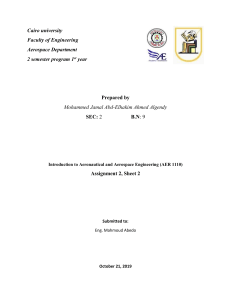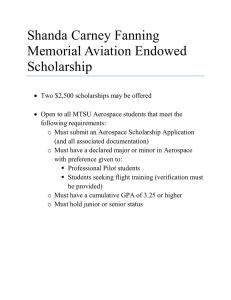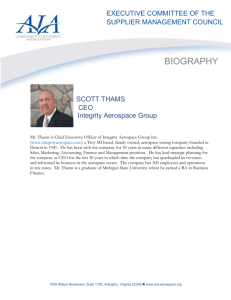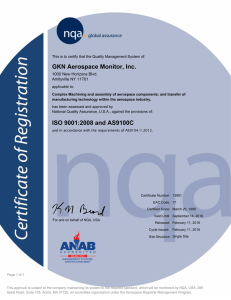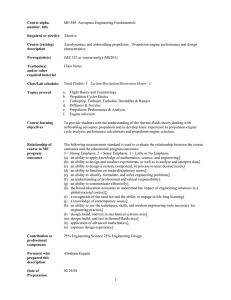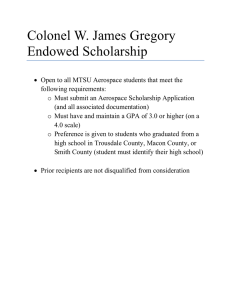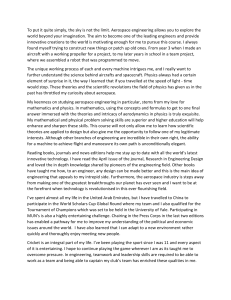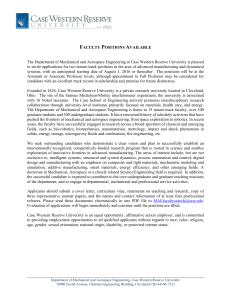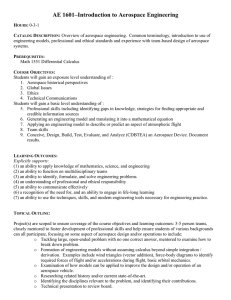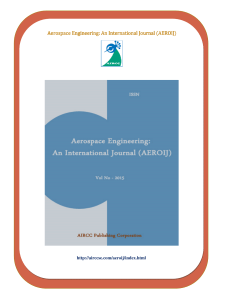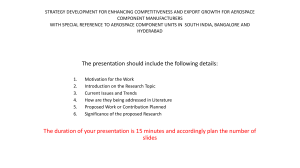(1a) an ability to apply knowledge of mathematics, science, and
advertisement
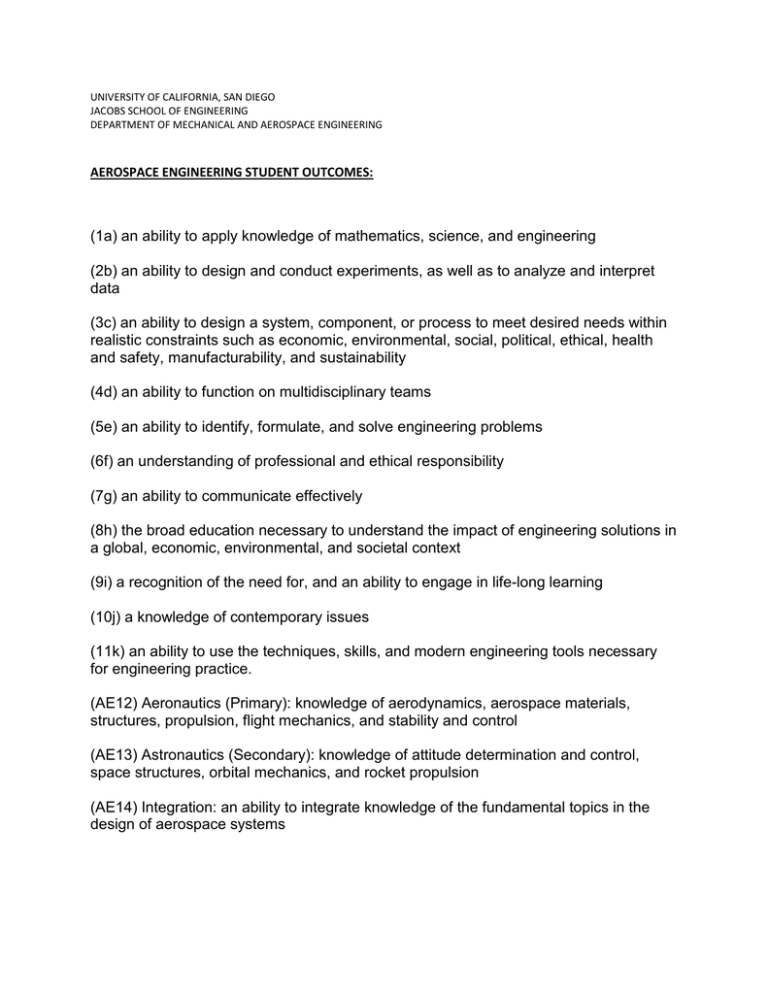
UNIVERSITY OF CALIFORNIA, SAN DIEGO JACOBS SCHOOL OF ENGINEERING DEPARTMENT OF MECHANICAL AND AEROSPACE ENGINEERING AEROSPACE ENGINEERING STUDENT OUTCOMES: (1a) an ability to apply knowledge of mathematics, science, and engineering (2b) an ability to design and conduct experiments, as well as to analyze and interpret data (3c) an ability to design a system, component, or process to meet desired needs within realistic constraints such as economic, environmental, social, political, ethical, health and safety, manufacturability, and sustainability (4d) an ability to function on multidisciplinary teams (5e) an ability to identify, formulate, and solve engineering problems (6f) an understanding of professional and ethical responsibility (7g) an ability to communicate effectively (8h) the broad education necessary to understand the impact of engineering solutions in a global, economic, environmental, and societal context (9i) a recognition of the need for, and an ability to engage in life-long learning (10j) a knowledge of contemporary issues (11k) an ability to use the techniques, skills, and modern engineering tools necessary for engineering practice. (AE12) Aeronautics (Primary): knowledge of aerodynamics, aerospace materials, structures, propulsion, flight mechanics, and stability and control (AE13) Astronautics (Secondary): knowledge of attitude determination and control, space structures, orbital mechanics, and rocket propulsion (AE14) Integration: an ability to integrate knowledge of the fundamental topics in the design of aerospace systems
